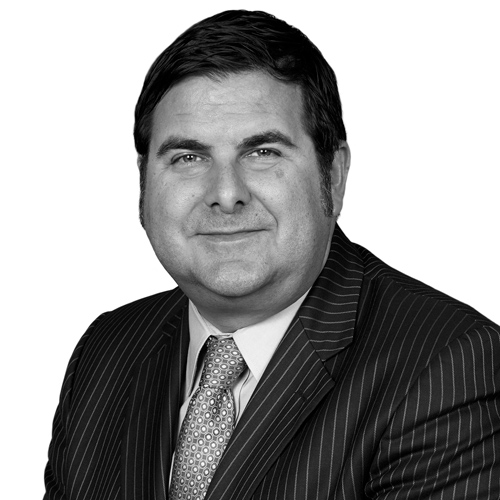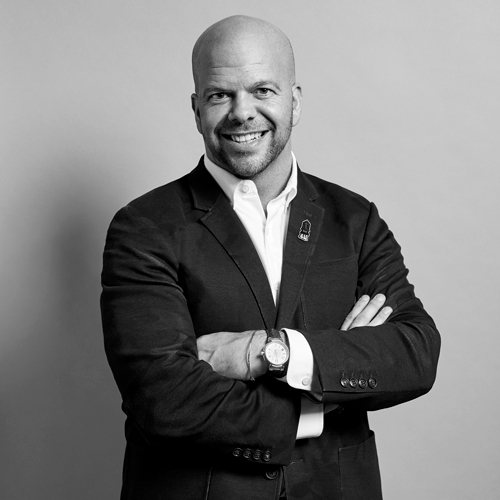
It’s difficult to imagine a more traumatic experience than losing a loved one. For many of the bereaved, donating the organs and tissues of the deceased to hospitals makes them feel that their loved ones live on by helping others to live. Joe Yaccarino, executive vice president of operations with nonprofit MTF Biologics (MTF), says that he experiences the impact of this gift every day when he comes to work.
“We are the stewards of that gift the family makes,” Yaccarino says of the nonprofit, which specializes in providing clinically sound allograft donations. “We do everything possible to respect that gift and maximize its impact.”
About 120,000 people need organ transplants every day, and several hundred thousand more can benefit from tissue donations. For thirty years, MTF has been meeting this need. Every year, the company uses donated tissue to make an average of 450,000 transplants possible around the world. The donations are used in everything from orthopedics and wound care to plastic and reconstructive surgery.
The average age of a donor is forty-six. The donor has generally died from an injury or accident, so their organs and tissues are healthier than someone who had passed away from illness.
Bone is even more versatile in the ways it can help, Yaccarino says. The human body will respond to bone material that comes from anyone and does not need to be matched. The company is able to create spinal spacers and bone putty to fill in voids and assist in spinal fusion. MTF will also process segments of bone—pelvis, femur, tibia, and more—that assist in healing.
Yaccarino, a mechanical engineer who began his career working in medical devices for a company called Microsurgical twenty-five years ago, has been with MTF for the past twenty years. Although his knowledge of medical practices was limited, he quickly found that all the skills he had developed as an engineer were transferable.
“I had to learn about the human body and bone healing and about the spine,” Yaccarino explains. “Tissue banking requires knowledge about anatomy and medical procedures. But once I learned those things, I could approach the tasks with the mind-set of a mechanical engineer.”
The bone or tissue that is donated is the basis for further processing, Yaccarino says. MTF has the capability to cut and shape the material using saws to create intricate shapes and designs to fit any patient’s needs. Over the years, technology has improved the speed and precision of the process. The company also uses multiple-piece assemblies for spine fusion. To satisfy the height requirements needed for a given transplant, MTF pins, stacks, and assembles pieces together.
Stepping away from the focused engineering aspect, there is always the emotional element to MTF’s work. Although the company recovers tissues from organ procurement organizations, it still maintains a tight connection to the donor families, Yaccarino says.
“We are involved with the donors as well as the recovery partners,” he says. “With each implant we send, we include a card that describes it as a gift and allows the recipient to write a letter that, with prior acceptance, will go to the donor family. We have quarterly company meetings where donor families and recipients tell their story. Donor families talk about their experience of having a loved one pass away, the process of donation, and how they feel about helping so many people. Recipients talk about the gift they have received and how it has changed their lives. It is a powerful and energizing moment for our company.”
Market needs have changed over the company’s thirty years in business, and they can change on a monthly basis, Yaccarino says. Fast and furious advances change the game. In sports medicine, one of the sectors MTF works with frequently, new techniques are constantly being developed. MTF has a research-and-development group of forty-five people who are always looking for new ways to use tissue, and a robust engineering staff is always hard at work discovering new ways of processing the material.
“We are always looking at changes and trends in each of our business areas,” he says. “We are responding to hospitals’ and surgeons’ changing needs. Like any company, we try to satisfy that demand, but the unique aspect is that we rely on donated tissues to achieve this balance.”
Because the market is always shifting, MTF places a premium on innovation. Through the years, they have been on the vanguard, developing dozens of implants that the marketplace adopted.
Yaccarino says that today the company is focused on two major growth areas: plastic and reconstructive surgery, and wound care. Transplants processed from skin are used in breast reconstruction after a mastectomy. They use a membrane from a placenta to help diabetics who suffer from foot and leg ulcers. The use of stem cells has also increased and is making a major impact in fusions and bone healing.
When Yaccarino joined MTF, he was the only engineer, and the company only employed forty-five people. Today, there are roughly 1,100 team members, and about 550 are in Yaccarino’s divisions.
He has built several teams throughout his tenure including engineering, planning, and processing. Lately, Yaccarino has focused his efforts on building high-powered business teams that drive innovation, meet customer needs, and honor donated gifts. He says that as the company grew, he always tried to bring in smart and results-oriented people who were interested in accountability and driving their own results. Many people who began with the company in those lean years are still there. They started at lower-level positions and moved up through promotions. Leading his team, Yaccarino is motivated largely by his motto that everyone should “drive their own bus.”
“When we’re younger, we are like passengers on a bus,” he says. “We are simply experiencing things. But as we mature and aspire to higher goals and figure out what we really want to do, we have to move into the driver’s seat and steer that bus in the right direction. I’m a believer in personal accountability and responsibility. If you want to do something, then you need to make it happen. As a company, we give everyone the tools they need to not only get the job done, but also to go beyond what they ever thought they
could do.”

